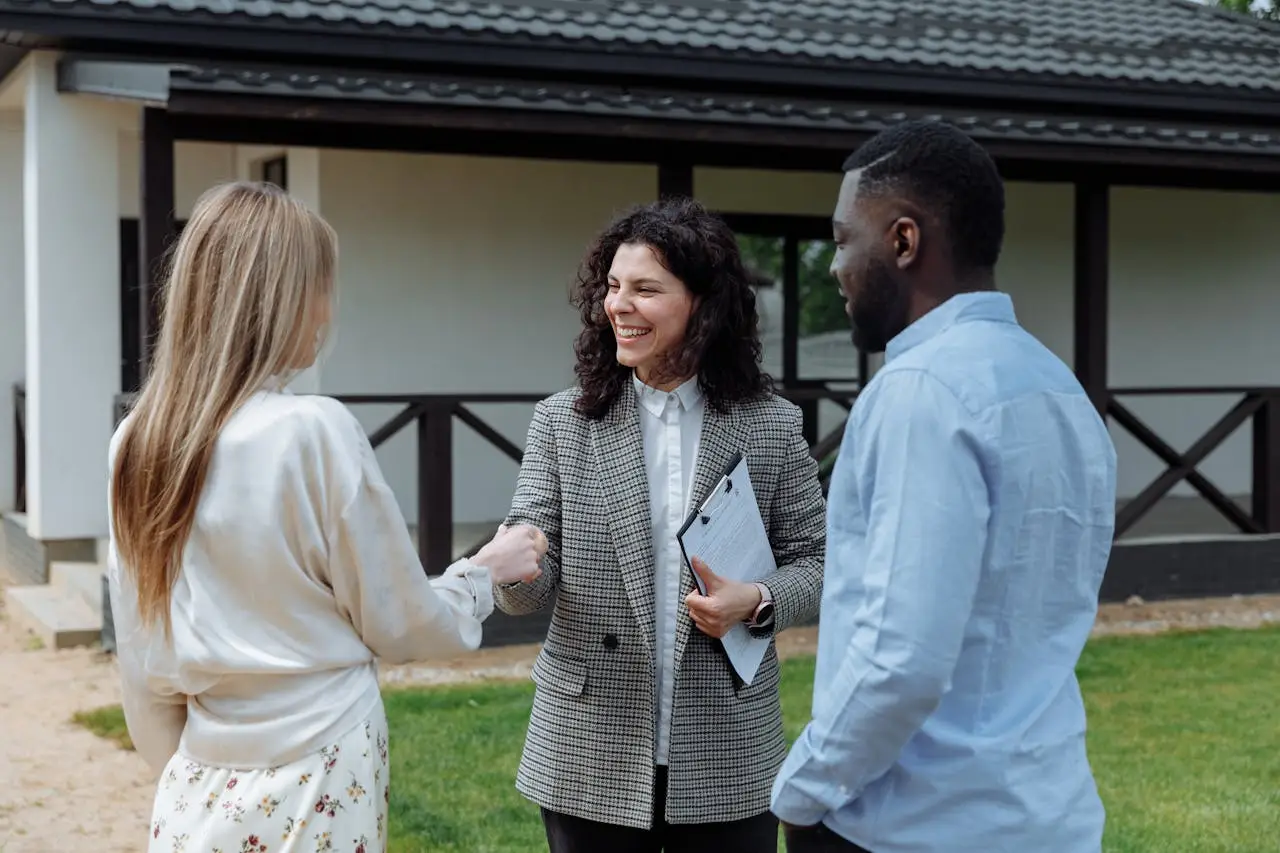When you think about building long-term client relationships in real estate, it’s clear that trust and communication are key. You can’t just focus on the sale; understanding your clients’ needs and maintaining a connection afterward is important. By actively listening and personalizing your approach, you create a foundation that fosters loyalty. However, many agents overlook the importance of post-sale engagement, which can greatly impact those relationships. So, what strategies can you implement to guarantee your clients feel valued long after the transaction is complete?
Building Trust and Credibility
Building trust and credibility in real estate is like laying a solid foundation for a home; without it, everything else can crumble. To establish that trust, you need to adhere strictly to ethical practices, including the REALTOR® Code of Ethics.
By explaining your agency’s role from the consumer’s perspective, you demonstrate your commitment to safeguarding their interests and confidentiality. Highlighting your fiduciary duties reassures clients that their needs will always come first, as trust is the primary factor in their selection of a real estate professional.
Client testimonials are a significant tool in this process. People trust the experiences of others, so showcasing positive feedback can greatly enhance your credibility.
Gather testimonials from past clients and display them prominently on your website and social media. This social proof not only boosts your trustworthiness but also reduces your reliance on lead generation services, improving your conversion rates.
Understanding Client Needs
When you truly understand your clients’ needs, you pave the way for a smoother and more effective real estate experience. Start by identifying their client objectives. Are they looking to expand, downsize, or relocate? Knowing their goals helps you align your services with their strategic vision.
Next, immerse yourself in their operational requirements. Ask about their day-to-day operations and key features, like high-speed internet connectivity or flexible layout options. This understanding allows you to match properties that fit their unique needs, while also considering industry-specific regulations and growth projections. Additionally, understanding challenges enables tailored solutions that provide real value.
Don’t forget to discuss budget constraints. Align your recommendations with their financial capabilities, ensuring you manage expectations realistically. A thorough cost-benefit analysis can help clients see the long-term implications of their choices on their operational needs and financial health.
Lastly, personalization is key. Tailor your recommendations to reflect their preferences, and keep communication open. By continuously engaging with your clients and incorporating their feedback, you’ll build a solid foundation for a lasting relationship.
Understanding their needs isn’t just beneficial; it’s vital for their success and yours.
Effective Communication Strategies
Effective communication is the key to strong client relationships in real estate. To build trust, you need to practice active listening—fully concentrating on what your clients say, responding appropriately, and showing genuine interest through eye contact and affirmative comments. This two-way communication process fosters understanding and demonstrates that you value their thoughts.
Clear messaging is just as important. Keep your language straightforward and free of ambiguity to avoid misinterpretation. When your messages are concise, clients feel more confident in your guidance.
Don’t forget about fostering a feedback culture. Regularly engaging in constructive feedback helps address concerns promptly and promotes continuous improvement. This openness builds trust and enhances your client relationships. Additionally, effective communication skills are essential for navigating challenges and uncertainties in the real estate market.
Non-verbal communication also plays a significant role. Maintain open body language, avoid distractions, and stay focused during conversations. Your professionalism—punctuality, respectful communication, and ethical conduct—reinforces your credibility.
Finally, leverage various communication channels. Identify your clients’ preferred modes, whether it’s emails, calls, or in-person meetings. Tailoring your approach to their preferences guarantees active engagement and satisfaction, solidifying your long-term partnership.
Personalization and Customization
Strong communication sets the stage for personalizing your approach to client relationships in real estate. By understanding your clients’ unique needs and preferences, you can create personalized experiences that truly resonate.
Start by actively listening and asking insightful questions. This helps you gather key information about their lifestyle and long-term goals, paving the way for tailored services.
Develop detailed client profiles that incorporate insights from various channels. This knowledge allows you to make personalized recommendations that enhance every interaction, ensuring clients feel valued and understood.
Remember, your approach should adapt as client needs evolve.
Integrating technology, like CRM tools, can streamline this process, showcasing your commitment to delivering a customized experience.
Employing small gestures—like personalized thank you notes or tailored property tours—can leave a lasting impact.
Post-Sale Engagement and Retention
After closing a sale, the expedition doesn’t end; it’s just the beginning of building a lasting relationship with your clients. Engaging in post-sale follow-ups is significant for maintaining that connection. Start by expressing gratitude through a personalized thank-you note or a phone call. This simple gesture acknowledges their trust and sets a positive tone for future interactions.
Next, provide valuable resources to ease their moving process, like recommendations for movers or cleaners. Schedule a post-sale meeting to discuss any lingering questions and gather client feedback. This shows you genuinely care about their experience.
Your relationship doesn’t stop there. Plan regular check-ins, perhaps an anniversary call or seasonal newsletters, to keep the lines of communication open. Share market insights and invite them to annual client events to reinforce your connection.
Always seek client feedback to refine your services and demonstrate your commitment to their satisfaction. By incorporating these strategies, you not only enhance client retention but also cultivate loyalty that can lead to repeat business.

